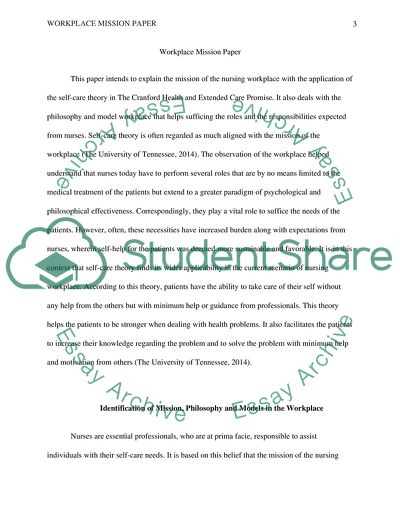Cite this document
(Workplace Mission Paper Essay Example | Topics and Well Written Essays - 1250 words, n.d.)
Workplace Mission Paper Essay Example | Topics and Well Written Essays - 1250 words. https://studentshare.org/nursing/1859827-self-care-nursing-theory-in-the-cranford-health-and-extended-care-promise
Workplace Mission Paper Essay Example | Topics and Well Written Essays - 1250 words. https://studentshare.org/nursing/1859827-self-care-nursing-theory-in-the-cranford-health-and-extended-care-promise
(Workplace Mission Paper Essay Example | Topics and Well Written Essays - 1250 Words)
Workplace Mission Paper Essay Example | Topics and Well Written Essays - 1250 Words. https://studentshare.org/nursing/1859827-self-care-nursing-theory-in-the-cranford-health-and-extended-care-promise.
Workplace Mission Paper Essay Example | Topics and Well Written Essays - 1250 Words. https://studentshare.org/nursing/1859827-self-care-nursing-theory-in-the-cranford-health-and-extended-care-promise.
“Workplace Mission Paper Essay Example | Topics and Well Written Essays - 1250 Words”. https://studentshare.org/nursing/1859827-self-care-nursing-theory-in-the-cranford-health-and-extended-care-promise.


